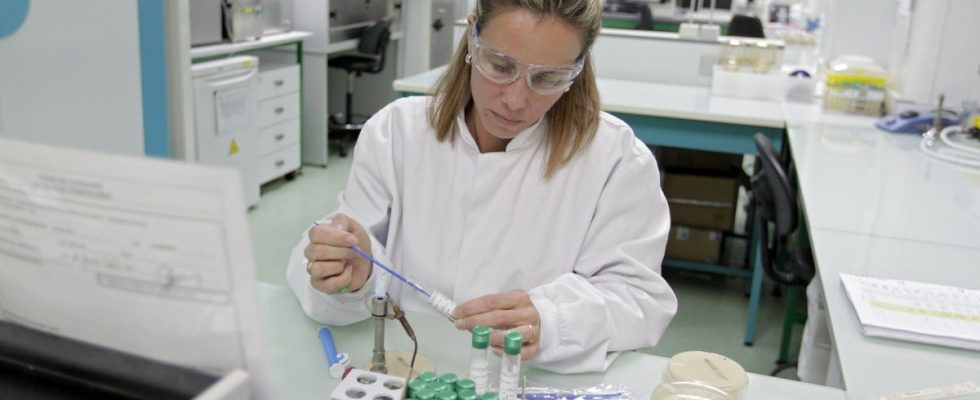An unsavory name and often unknown to the general public in the battalion. If someone tells you “mycoplasma genitalium” (MG), or urogenital mycoplasma, you probably don’t know what it is. However, we are talking about a sexually transmitted infection (STI) which affects more than 500,000 people in the United Kingdom alone, according to a recently published British study. And in France, is this little-known disease also circulating?
What are the symptoms of this STI? Is it serious or benign? Can it have repercussions on health or fertility? And are there effective treatments? We take stock.
An STI often asymptomatic
Mycoplasma genitalium, kézako? “The genital flora naturally shelters a large set of microorganisms, including bacteria such as lactobacilli, but also mycoplasma hominis for example, which participate in the balance of the microbiota,” says Dr. Odile Bagot, gynecologist and author of the work Vagin & Cie, we tell you everything! (ed. Mango) and the blog Mam Gynéco. MG has a 100% sexually transmitted connotation. It’s not as dangerous as a chlamydia or gonococcal infection, but it’s mostly a marker of STIs, so you should always look for ‘criminal association’ with other infections.”
In practice, “it is an STI that resembles chlamydia trachomatis infection – much more common. The problem is that both are frequently asymptomatic, explains Professor Cécile Bébéar, head of the bacteriology department at Bordeaux University Hospital, director of the National Reference Center for Bacterial STIs and specialist in mycoplasma genitalium infections. In men, MG can cause urethritis, inflammation of the urethra, or cause no symptoms at all. And in women, “identifying suggestive symptoms is not easy either,” says Dr. Bagot. This does not give rise to pelviperitonitis – a pelvic inflammation most often of bacterial origin – as marked as with a gonococcal or chlamydia infection.”
An STI with little-known prevalence
In addition, “MG is a bacteria whose natural history we do not know very well,” recalls Professor Bébéar. There are symptomatic cases and others not, and we do not really know the risks of long-term sequelae in both men and women. This may sometimes cause cases of salpingitis. [une infection des trompes reliant l’utérus aux ovaires], with potentially effects that could affect fertility.” How ? “Any imbalance in the flora, even with non-sexually transmitted infections, can increase the risk of miscarriage or affect fertility,” answers Dr. Bagot.
And if in the United Kingdom, half a million people are affected by this STI, “in France, we do not have figures because to date, there have been no studies,” underlines the Prof. Bébéar. The PrévIST study, carried out by Public Health France, is underway to determine the prevalence of MG in the general population in France, and it is estimated that it would be between 1 and 3% of the population. “Mainly young adults,” adds Dr. Bagot. However, there is no question of falling into alarmism. MG is not that common, and when we order an STI test, we screen for it systematically.” To protect yourself from this STI, “protecting yourself with a condom remains the most effective protection,” insist Dr Bagot and Professor Bébéar.
An STI increasingly resistant to antibiotics
Fortunately, antibiotic treatments are available to treat MG infection. But if it is also important to protect yourself, “it is because this bacteria presents resistance to antibiotics, much greater than for the treatment of chlamydia for example,” indicates Professor Bébéar. International studies carried out by our CNR highlight very worrying figures: MG presents in France a resistance rate of around 35% to treatment with macrolides, a family of antibiotics to which azithromycin, the first-line treatment, belongs. intention of this infection”.
And why has the bacteria developed so much antibiotic resistance over the past ten years? “Because we have treated many cases of chlamydia with this drug, considered for this infection as a quick treatment,” explains the director of the CNR for bacterial STIs. Unfortunately, this selected for resistant bacteria including MG. This is why it is recommended in a certain number of countries – and a priori very soon in France too – to preferably use doxycycline, which belongs to another family of antibiotics, to treat infections with chlamydia,” continues Professor Bébéar.
Towards better screening
Screening for MG should also evolve. “For a long time, we were unable to detect it,” remembers Professor Bébéar. But we can today, thanks to PCR screening methods that work very well. On the other hand, its screening is not yet reimbursed by Social Security, which should change by 2024, in accordance with the HAS recommendations of July 2022.”
For the moment, “screening and treatment with antibiotics are only intended for symptomatic people and their partners,” specifies Professor Bébéar. Restricted access justified by the fight against antibiotic resistance. If necessary, “MG could become intractable – because the second-line treatment after macrolides is fluoroquinolones, another family of antibiotics, which are also facing growing resistance. And after that, there’s not much else in the therapeutic arsenal.”

